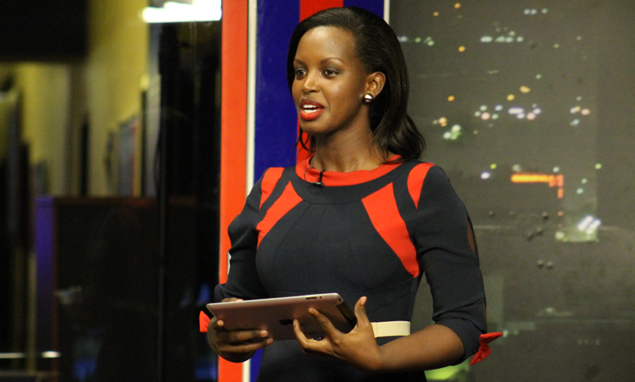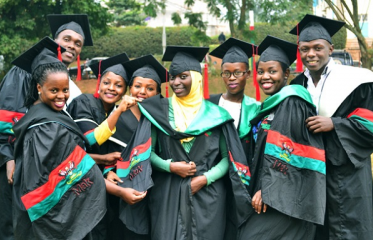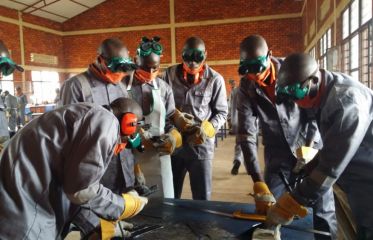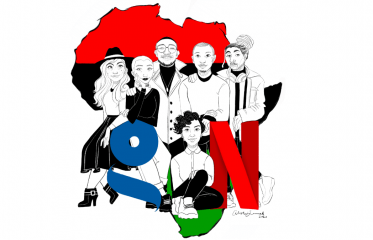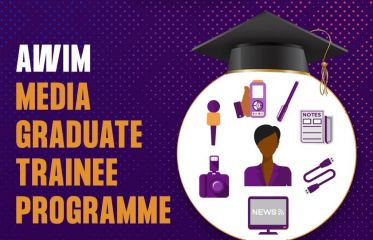Breaking News
- Flexible Remote Work Opportunity for University Students: Earn $100–$250 Per Month ...Read More
- Ministry of Education and Sports Azerbaijan Government Scholarships For 2025-2026 Academic Year ...Read More
- Government Sponsorship Undergraduate Admission Lists 2025-26 for Makerere University ...Read More
- Ministry of Education And Sports: Egyptian Government Scholarships 2025-2026 Academic Year ...Read More
- Ground Breaker Full Scholarship for girls to study Software Engineering 2025 July Intake ...Read More
- Tony Elumelu Foundation Entrepreneurship Programme (TEEP) 2025 for young African Entrepreneurs ...Read More
- DESIGNING FUTURES 2050 International Design Competition 2025 (€15,000 prize) ...Read More
- Ground Breaker Full time Scholarship for girls to study Software Engineering 2025 Intake ...Read More
- Ministry of Education And Sports Algerian Vocational Training Scholarships for 2024-2025 AY ...Read More
- Ministry of Education and Sports Advert for the Algerian Government Scholarships for 2024-2025 ...Read More
Reporter, Correspondent and Broadcast News Analyst
Reporters, correspondents, and broadcast news analysts inform the public about news and events happening internationally, nationally, and locally. They report the news for newspapers, magazines, websites, television, and radio.
Add to FavouritesReporters, correspondents, and broadcast news analysts inform the public about news and events happening internationally, nationally, and locally. They report the news for newspapers, magazines, websites, television, and radio.
Daily Activities / Routine Tasks
Reporters, correspondents, and broadcast news analysts typically do the following:
1. Research topics and stories that an editor or news director has assigned to them
2. Interview people who have information, analysis, or opinions about a story or article
3. Write articles for newspapers, blogs, and magazines and write scripts to be read on television or radio
4. Review articles for accuracy and proper style and grammar
5. Develop relationships with experts and contacts who provide tips and leads on stories
6. Analyze and interpret information to increase their audiences’ understanding of the news
7. Update stories as new information becomes available
Reporters and correspondents, also called journalists, often work for a particular type of media organization, such as a television or radio station, newspaper, or website.
Those who work in television and radio set up and conduct interviews, which can be broadcast live or recorded for future broadcasts. These workers are often responsible for editing interviews and other recordings to create a cohesive story and for writing and recording voiceovers that provide the audience with the facts of the story. They may create multiple versions of the same story for different broadcasts or different media platforms.
Most television and radio shows have hosts, also called anchors, who report the news and introduce stories from reporters.
Journalists for print media conduct interviews and write articles to be used in newspapers, magazines, and online publications. Because most newspapers and magazines have both print and online versions, reporters typically produce content for both versions. Doing so often requires staying up to date with new developments of a story, so that the online editions can be updated with the most current information.
Some journalists also may convey stories through both broadcast and print media and help manage the organization’s web content. For example, television stations often have a website, and a reporter may produce a blog post or an article for the website. Similarly, a reporter working for newspapers or magazines may create videos or podcasts that people access online. Depending on the employer, these workers may be known as multimedia producers, social media producers, or web content managers rather than as reporters or correspondents.
Stations are increasingly relying on multimedia journalists to publish content on a variety of platforms, including radio and television stations, websites, and mobile devices. Multimedia journalists typically shoot, report, write, and edit their own stories. They also gather the audio, video, or graphics that accompany their stories.
Reporters, correspondents, and broadcast news analysts may need to maintain a presence on social media networking sites. Many may use social media to cover live events, provide additional information for readers and viewers, promote their stations and newscasts, and better engage with their audiences.
Some journalists cover a particular topic, such as sports, medicine, or politics. Others cover a wide range of issues.
Journalists working in large cities or for large news organizations are more likely to specialize. Journalists who work in small cities, towns, or organizations may need to cover a wider range of subjects.
Some reporters live in other countries and cover international news. Some journalists, called commentators or columnists, interpret the news or offer opinions to readers, viewers, or listeners.
Although some broadcast news analysts present weather reports, broadcast meteorologists are a type of atmospheric scientist. Many other broadcast news analysts come from fields outside of journalism, for example politics or medicine, and are hired on a contract basis to provide analyses of the subjects being discussed.
Some reporters—particularly those who work for print news—are self-employed and take freelance assignments from news organizations. Freelance assignments are given to writers on an as-needed basis. Because freelance reporters are paid for the individual story, they work with many organizations and often spend some of their time marketing their stories and looking for their next assignment.
Some people with a background as a reporter, correspondent, or broadcast news analyst work as postsecondary teachers and teach journalism or communications at colleges and universities.
Education
Most employers prefer workers who have a bachelor’s degree in journalism or communications. However, some employers may hire applicants who have a degree in a related subject, such as English or political science, and relevant work experience.
Bachelor’s degree programs in journalism and communications include classes in journalistic ethics and techniques for researching stories and conducting interviews. Many programs require students to take liberal arts classes, such as English, history, economics, and political science, so that students are prepared to cover stories on a wide range of subjects.
Some journalism students may benefit from classes in multimedia design, coding, and programming. Because content is increasingly delivered on television, websites, and mobile devices, reporters need to know how to develop stories with video, audio, data, and graphics.
Some schools offer graduate programs in journalism and communications. These programs prepare students who have a bachelor’s degree in another field to become journalists.
Top Skills / Qualities
Communication skills. Journalists must be able to report the news both verbally and in writing. Strong writing skills are important for journalists in all kinds of media.
Computer skills. Journalists should be able to use editing equipment and other broadcast-related devices.
Interpersonal skills. To develop contacts and conduct interviews, reporters need to build good relationships with many people. They also need to work well with other journalists, editors, and news directors.
Objectivity. Journalists need to report the facts of the news without inserting their opinion or bias into the story.
Persistence. Sometimes, getting the facts of a story is difficult, particularly when those involved refuse to be interviewed or provide comment. Journalists need to be persistent in their pursuit of the story.
Stamina. The work of journalists is often fast paced, with long and exhausting hours. Reporters must be able to keep up with the long hours.



























